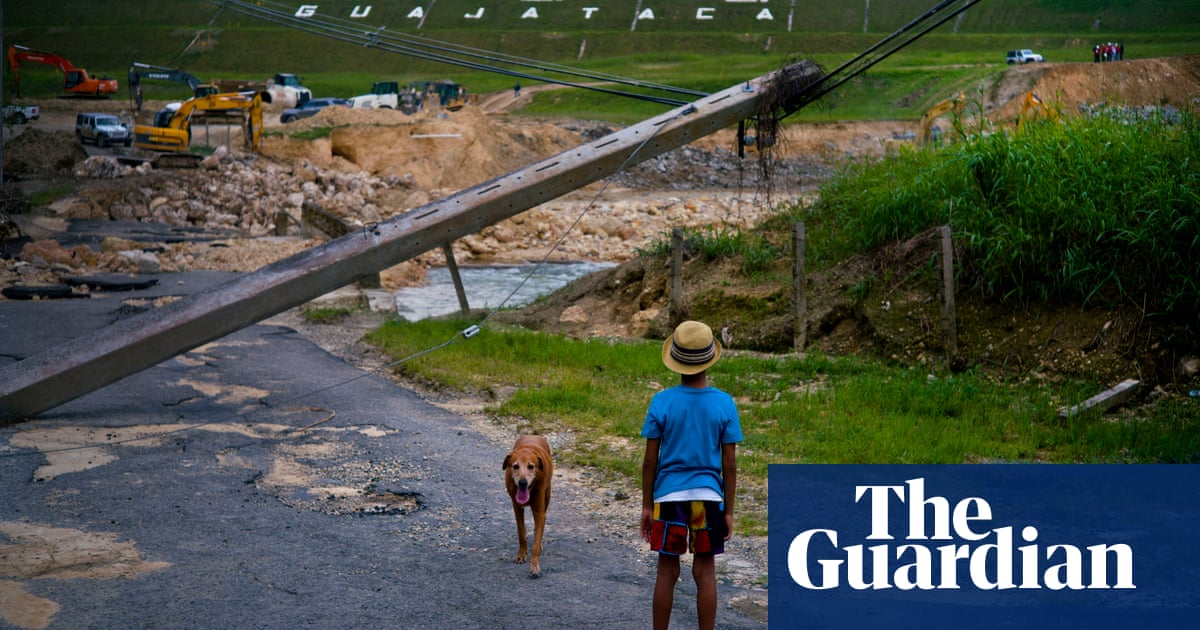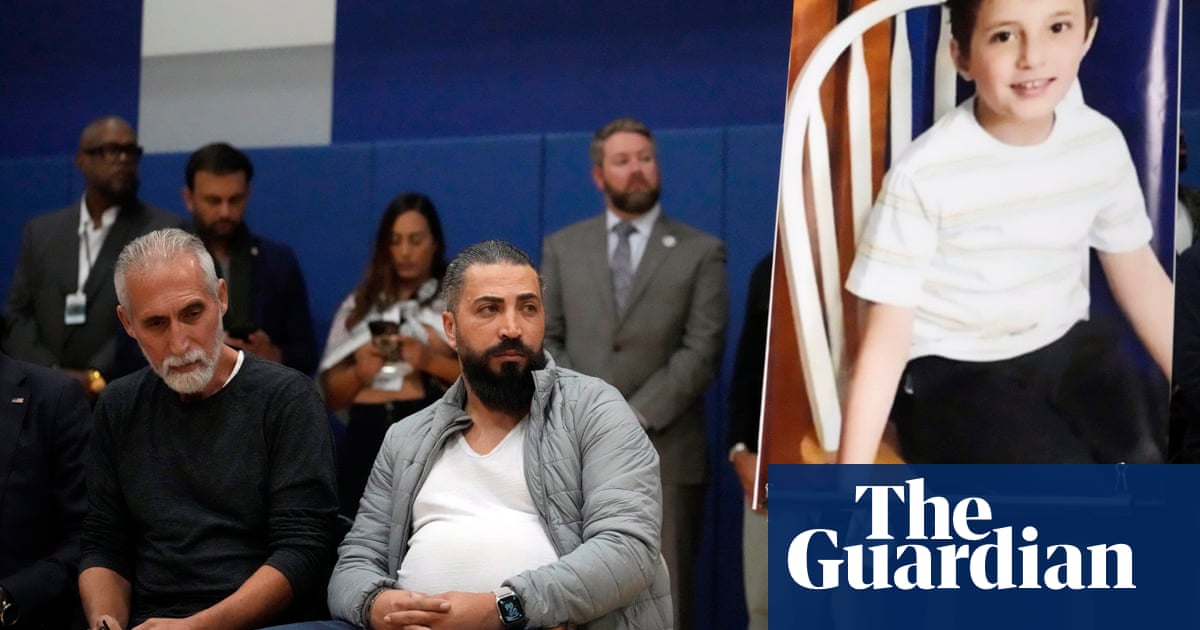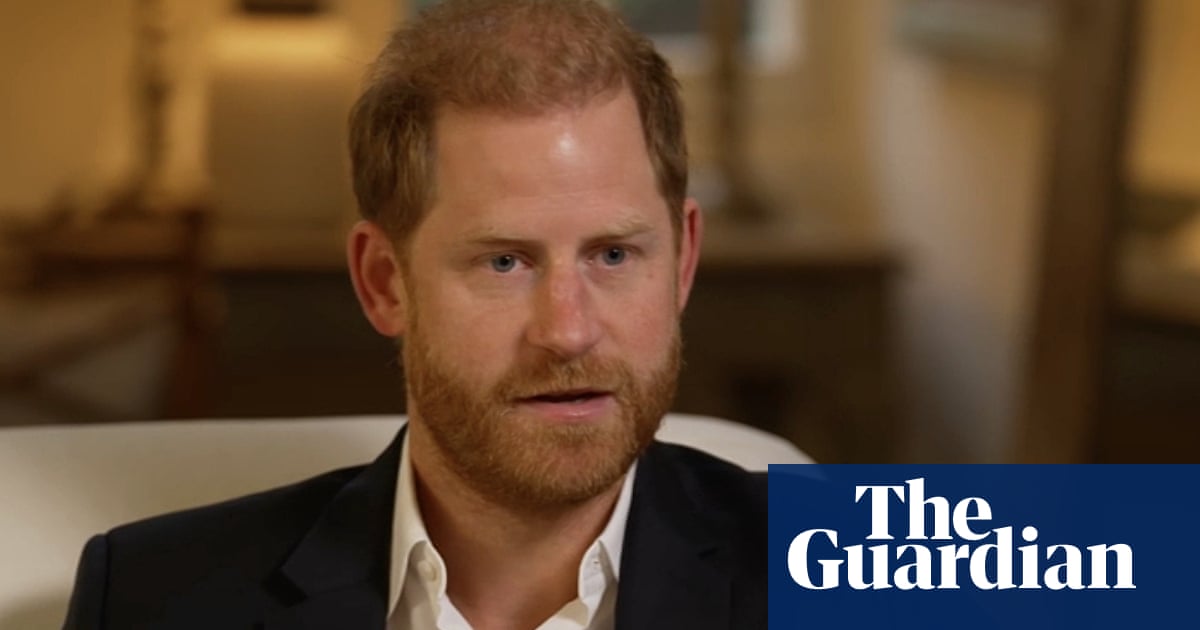Israel’s air force launched airstrikes against unidentified targets near Syria’s presidential palace, in what Israeli officials said was a warning to the Syrian government after days of bloody clashes near Damascus between pro-government militia and fighters from the Druze minority sect
Benjamin Netanyahu, Israel’s prime minister, and the defence minister, Israel Katz, said in a joint statement that the strike early on Friday, the second this week in Syria, was intended to deter the country’s new leadership from any hostile move against the Druze.
“This is a clear message to the Syrian regime. We will not allow the deployment of forces south of Damascus or any threat to the Druze community,” a statement released by the Israeli government said.
The Israeli army confirmed in a statement that fighter jets struck adjacent to the area of the palace of President Hussein al-Sharaa in Damascus but gave no further details.
The clashes broke out on Tuesday after an audio clip circulated on social media of a man making derogatory comments about the prophet Muhammad. The clip, which was attributed to a Druze cleric, angered many Sunni Muslims, but may have been fabricated.
A UK-based monitoring group, the Syrian Observatory for Human Rights, said 56 people in Sahnaya and the Druze-majority Damascus suburb of Jaramana were killed in clashes, including both local armed fighters and security forces.
On Thursday, Syria’s Druze spiritual leader, Sheikh Hikmat al-Hijri, accused Syria’s government, which is mostly made up of radical Islamist groups led by Hayat Tahrir al-Sham, of what he called an “unjustified genocidal attack” on the minority community.
The Druze religious sect began as a 10th-century offshoot of Ismailism, a branch of Shiite Islam. More than half of the roughly 1 million Druze worldwide live in Syria, largely in the southern Sweida province and some suburbs of Damascus.
Most of the other Druze live in Lebanon and Israel, including in the Golan Heights, which Israel captured from Syria in the 1967 war and annexed in 1981.
The Syrian government has denied that any of its security forces were involved in the clashes with the Druze, which follow a wave of massacres in March in which security forces and allied groups killed more than 1,700 civilians, mostly from Assad’s Alawite community, according to the Syrian Observatory for Human Rights.
Asaad al-Shaibani, the Syrian foreign minister, on Thursday called for “national unity” as “the solid foundation for any process of stability or revival”.
“Any call for external intervention, under any pretext or slogan, only leads to further deterioration and division,” he wrote on X.
At a meeting of Druze leaders, elders and armed groups in the southern Syrian city of Sweida, the community agreed it was “an inseparable part of the unified Syrian homeland” and rejected “partition, separation or disengagement”, a spokesperson said.
Since the fall of the regime of Bashar al-Assad in December, Israel has launched repeated airstrikes into Syria, destroying military hardware and stockpiles, and in what it says is defence of the Druze. Israel has also sent troops to what was a demilitarised zone in the Golan Heights, on Syria’s south-west border with Israel, seizing key strategic terrain where Syrian troops were once deployed.
Analysts in Israel say the strategy aims to undermine the new Syrian government while also protecting and so co-opting a potential proxy ally within the country. The strategy is controversial, however, with some officials arguing that a stable Syria would better serve Israel’s interests.
Ahmed al-Sharaa, the Syrian president, told a visiting US congressman last week that Damascus seeks to normalise ties with Israel.
Protesters from the Druze community in Israel temporarily blocked roads on Thursday night and called for the Israeli government to protect the Druze community in Syria.
Underlining the regional dimension of the ongoing conflicts involving Israel, warning alarms sounded across much of northern Israel on Friday before air defence systems on Friday intercepted a missile that military officials said had been launched from Yemen.
Yemen’s Iran-backed Houthi rebels have repeatedly targeted Israel since the outbreak of the war in Gaza 18 months ago.

.png) 14 hours ago
7
14 hours ago
7













































